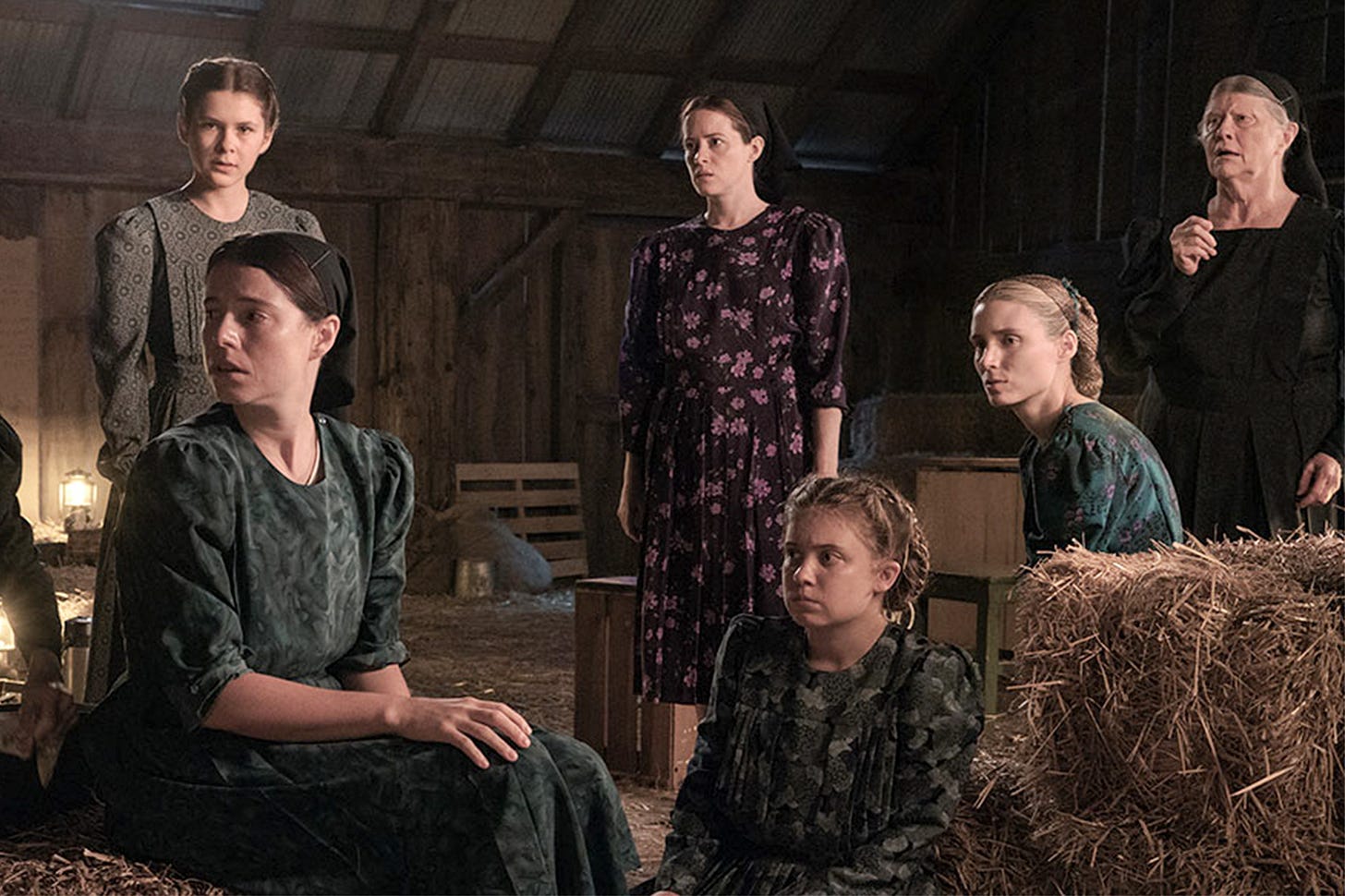“Women Talking” is a Powerful Condemnation of Violence Reduced to a Parable
Director Sarah Polley’s insistence on residing within a realm of allegory undermines an emotionally gutting story
After surviving years of rampant sexual abuse within an isolated Mennonite colony, a group of women reconcile with their faith and seize the autonomy they have always been deprived of, grappling with the decision between leaving or staying and fighting the men in their community. Based upon Miriam Toews’ novel depicting the real-life serial rape within the Manitoba Colony in Bolivia, Women Talking exists as a moral microcosm of relevant conversations, a feature that works to both its advantage and its detriment.
The most striking part of Women Talking is Sarah Polley’s restrained yet brutal dialogue on sexual assault. Her storytelling is deliberate and moving, and her focus on the issue as structural rather than individual is greatly appreciated. She never explicitly depicts violence, using only her characters' retrospective words to describe their experiences (paired with minimal flashbacks). Polley connects the events of an isolated community to those of greater culture so as to not misconstrue the assaults of the Manitoba Colony as socially abnormal. Women Talking uses a theatrical construction to encourage the viewer to question their intersecting positions within power structures. But this perspective only succeeds if it is divorced from the context of a real history of the Manitoba community (which had a completely different ending than that of the film).
Because Women Talking seems to use its source material as a stepping stone to engage in current conversations surrounding consent and violence in post #MeToo Hollywood, many of the characters and much of the dialogue feels dehumanized as parables rather than reality. The characters, most of whom are female, feel disconcertingly one-note — perhaps Sarah Polley was trying to use them as vehicles to convey a timeless condemnation of widespread sexual violence — but her choice seems misguided, considering the characters are based on the lives and experiences of real Mennonite women.
The film, and the real people whom it depicts, both explicitly mention that women within the colony were historically deprived of any collective understanding of their bodies outside of a religious context, so when they were violated, they could not voice the experience and the consequent pain they felt because they had been deprived of the language needed to do so. But then Women Talking divorces itself from this reality to feature long philosophical conversations in which the characters are used allegorically to debate talking points of 21st century feminism. I encourage filmmakers reaching beyond the camera to connect their stories within a broader social context, but Women Talking does so at the expense of authentic representation of real women’s trauma.
Women Talking is a noble and passionate film that often sacrifices artistic quality and authenticity by looking at its subjects under the overbearing microscope of global feminist issues. The passion and the craft maintain a powerful experience, but this momentum is occasionally interrupted by an insistence on engaging in contemporary dialogues beyond the fourth wall — Women Talking is a statement first and a story second.
OVERALL SCORE: 7/10
Women Talking was released on December 23 and is currently streaming on Amazon Prime.





we’re women talking right now
I wonder what Ruth and Cheryl think.